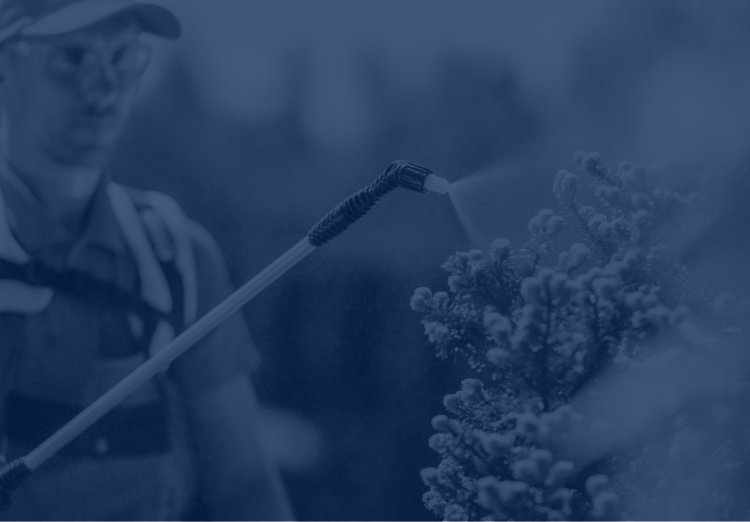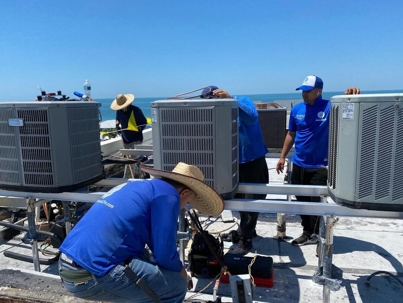This guide will discuss practical and effective ways to keep your air conditioning running smoothly. From simple DIY tasks to professional maintenance tips, you’ll find everything you need to know to improve your AC’s performance.
Benefits of Optimizing Your AC System
Improving your air conditioner’s performance has benefits beyond just cooling efficiency. By optimizing your AC, you can:
- Save on Energy Bills: An efficient AC system uses less energy, lowering monthly utility costs.
- Extend Equipment Lifespan: Well-maintained systems are less likely to break down and last longer.
- Increase Comfort Levels: Consistent cooling keeps every corner of your home comfortable.
- Reduce Environmental Impact: Lower energy usage also means a smaller carbon footprint.
So, let’s dive into the steps you can take to achieve these benefits!
Regular Maintenance Is Key
Imagine your AC system like a car engine: regular maintenance keeps it running smoothly. Scheduling regular maintenance can prevent unexpected breakdowns and ensure everything runs as it should. Start by tracking when your AC needs routine checkups, typically once or twice a year.
Clean or Replace Air Filters
One of the simplest and most impactful things you can do is to clean or replace the air filters regularly. Over time, filters collect dust, pollen, and other airborne particles, which can block airflow and reduce the AC’s efficiency.
- Frequency: Check filters every 1-3 months, especially during high-usage seasons.
- DIY Tip: If your filter is reusable, clean it according to the manufacturer’s instructions. Disposable filters should be replaced as recommended.
Check the Thermostat Settings
Your thermostat settings play a significant role in your AC’s performance. Set your thermostat to a comfortable temperature and avoid constant adjustments, which can force the system to work harder.
- Optimal Temperature: Set the thermostat to around 78°F (26°C) when you’re at home and 85°F (29°C) when away.
- Tip: Consider a programmable or smart thermostat to adjust settings based on your schedule automatically.
Clear Debris Around the Outdoor Unit
The outdoor unit, often called the condenser, can become obstructed by leaves, dirt, or other debris. When airflow is blocked, your AC must work harder, lowering efficiency.
- Routine Check: Inspect the outdoor unit every few weeks, especially during seasons when leaves or dust accumulate.
- Clear Space: Ensure at least two feet of clearance around the unit, trimming back bushes or plants if necessary.
Keep Vents Open and Unobstructed
Closing vents in unused rooms may seem like an excellent way to save energy, but it can hurt your AC’s efficiency. Keeping vents open and unblocked allows for balanced airflow, which reduces strain on the system.
- Check Furniture Placement: Ensure no furniture or rugs block vents.
- Improves Circulation: Open vents help cool the entire house more evenly, keeping you more comfortable.
Insulate and Seal Your Home
Poor insulation and air leaks can cause your AC to work harder than necessary. By sealing windows and doors and adding insulation, you keep cool air inside and prevent hot air from entering.
- Benefits: Helps maintain a consistent indoor temperature.
- DIY Sealing: Use weather stripping on windows and doors or add insulation to attics and walls for improved efficiency.
Use Fans to Circulate Air
Fans help circulate cool air throughout your home, allowing you to set your thermostat a little higher without sacrificing comfort.
- Ceiling Fans: Set ceiling fans to rotate counterclockwise in the summer to push cool air down.
- Portable Fans: Position portable fans in rooms that tend to get warmer to help circulate air and reduce the strain on your AC.
Limit Heat from Appliances
Appliances like ovens, stoves, and dryers produce much heat, making your AC work harder. Try to limit the use of heat-producing appliances during the hottest parts of the day.
- Intelligent Scheduling: Use ovens and dryers in the evening or early morning.
- Alternative Cooking: Grill outdoors to avoid heating the kitchen.
Schedule Professional Tune-Ups
Even with regular DIY maintenance, an annual professional tune-up is essential. HVAC technicians can identify and fix minor issues before they become more significant problems.
- What to Expect: A tune-up usually includes checking refrigerant levels, cleaning coils, and testing system components.
- Timing: Schedule your tune-up in the spring before peak cooling season to ensure your AC is ready to go.
Upgrade to a Programmable Thermostat
If you haven’t already, upgrading to a programmable thermostat can significantly affect energy savings and comfort. These thermostats allow you to set specific temperatures for different times of day, so you’re not cooling your home when you don’t need to.
- Benefits: Automatically adjusts temperatures when you’re away, which can lower energy bills.
- Innovative Options: Consider a smart thermostat for remote control and real-time monitoring from your smartphone.
Consider Adding Zoning Systems
Consider zoning systems if different areas of your home have varying temperature needs. This setup allows you to control the temperature in specific rooms or zones, reducing strain on your AC.
- Customized Comfort: This keeps everyone comfortable, especially in multi-story homes.
- Energy Efficiency: Allows you to cool only the areas you’re using.
When to Call a Professional
If your AC is making strange noises, blowing warm air, or struggling to maintain temperature, it may be time to call in a professional. A licensed technician can help diagnose and resolve the issue before it worsens.
- Common Signs: Unusual noises, inconsistent cooling, or frequent cycling on and off.
- Safety Tip: Don’t attempt repairs on complex components like the compressor or refrigerant lines – these require a pro.
Common Mistakes to Avoid
It’s easy to make mistakes when improving your AC’s performance. Avoid these common pitfalls to keep your system running at its best:
- Skipping Maintenance: Regular maintenance is essential even if your AC seems fine.
- Overusing the AC: Setting too low a temperature can overwork the system and increase energy costs.
- Ignoring Filters: Dirty filters are a common culprit behind poor AC performance – don’t forget to check them!
Conclusion
Improving your air conditioning system’s performance is all about regular maintenance, smart usage, and minor adjustments to reduce strain on the unit. By following these simple steps, you can enjoy a more extraordinary home, save on energy bills, and extend the lifespan of your system. And remember, don’t hesitate to call a professional for annual checkups and repairs. With these tips, you’ll stay relaxed and comfortable all summer!
FAQs
1. How often should I replace my air filter?
For optimal performance, replace your AC’s air filter every 1-3 months, especially during peak usage seasons.
2. What’s the ideal temperature to set my thermostat in summer?
A setting of around 78°F when you’re home and 85°F when away can help save on energy while keeping you comfortable.
3. Why is my AC blowing warm air?
If your AC is blowing warm air, it could be due to a clogged filter, low refrigerant levels, or a malfunction in the system. A professional tune-up may be needed.
4. How can I tell if my AC needs professional maintenance?
Signs your AC needs professional help include strange noises, inconsistent cooling, and frequent on-and-off cycling.
5. Can I improve AC performance without upgrading my unit?
Yes! Simple steps like regular filter changes, sealing leaks, and adjusting the thermostat can significantly boost performance without an upgrade.

